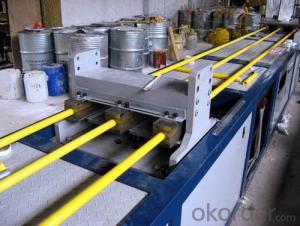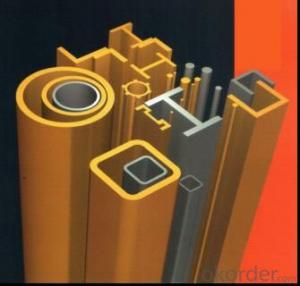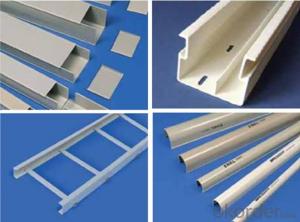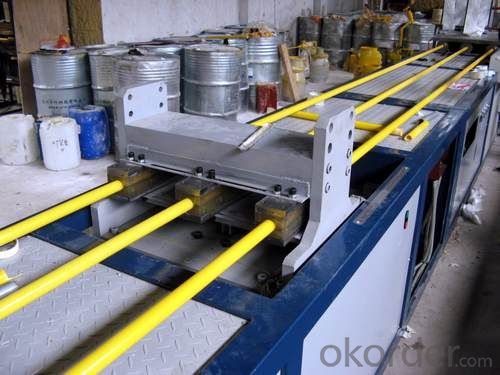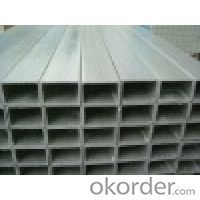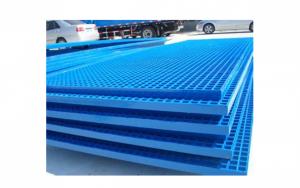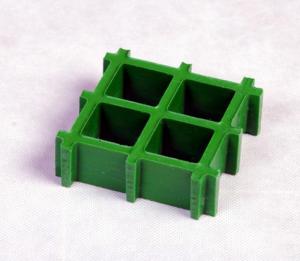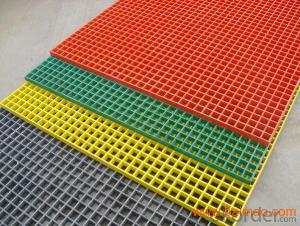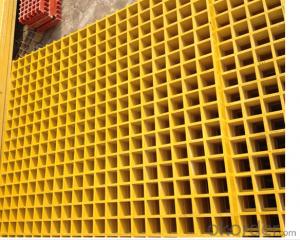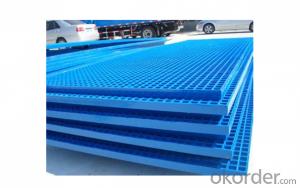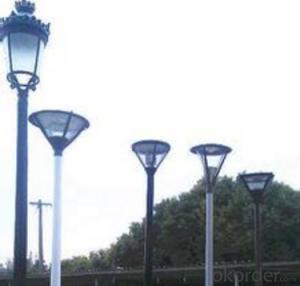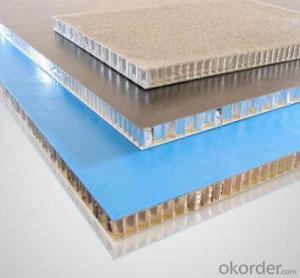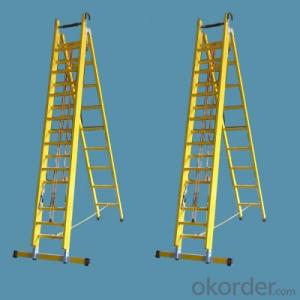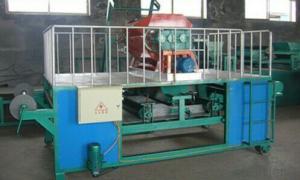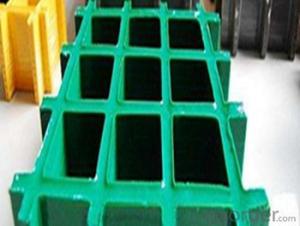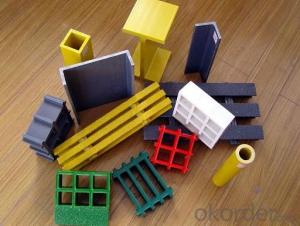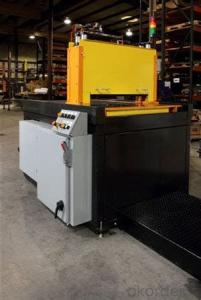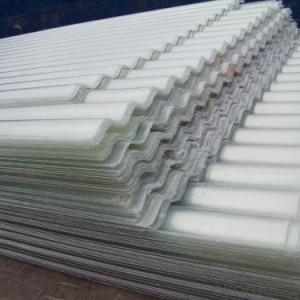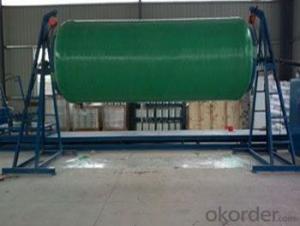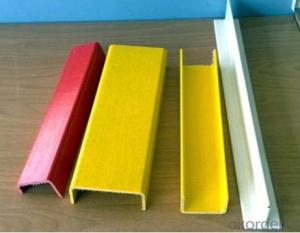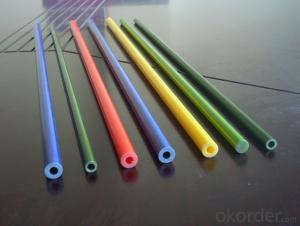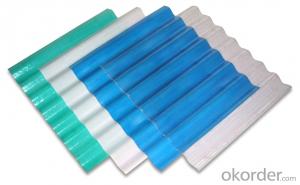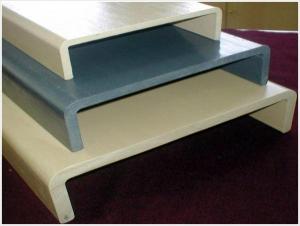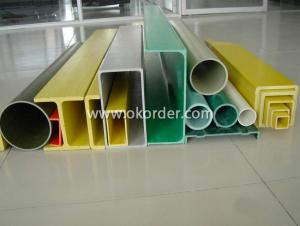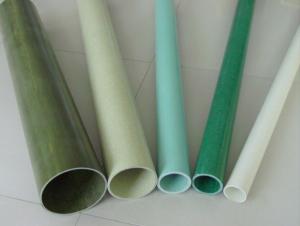FRP Pultrusion Profiles:Anti-Corrosion and Anti-Rust FRP Pultruded Grating
- Loading Port:
- Tianjin
- Payment Terms:
- TT OR LC
- Min Order Qty:
- 4000 m.t.
- Supply Capability:
- 30000 m.t./month
OKorder Service Pledge
OKorder Financial Service
You Might Also Like
Specification
PRODUCT DESCRIPTION
Pultruded grating is made by a par ticular assembly process, which using “I” shape as its main load-bearing and special rod to go through the bearing bar. Pultruded grating include the standard grating and the custom grating, the custom grating can be designed to meet customer’s requirement or special using condition by changing the shape, size and space of the bearing bars, the sur face can be covered with lozenge panel, grit panel, or added the anti-slippery sand directly.
FRP pultruded grating has the most characteristics of molded grating, but it has its distinct advantages, it has very high fiberglass content in the loading direction, so it has very high load capability, it has more superiority when used at wide span, so that the basic support will be decreased and the project cost will be reduced accordingly.
1.SPECIFICATION
The standard space between two crossbars is 6 inch or 12 inch.
Thickness (mm) | Bar width (mm) | Open space (mm) | Open rate (%) | Approx weight (kg/m |
25.4 | 15.2 | 22.8 | 60 | 13.2 |
25.4 | 15.2 | 15.2 | 50 | 15.9 |
25.4 | 15.2 | 10.1 | 40 | 18.5 |
25.4 | 40 | 10.8 | 21 | 14.5 |
38.1 | 15.2 | 22.8 | 60 | 15.8 |
38.1 | 15.2 | 15.2 | 50 | 19.1 |
38.1 | 15.2 | 10.1 | 40 | 22.4 |
50.8 | 25.4 | 25.4 | 50 | 16.6 |
50.8 | 25.4 | 12.7 | 33 | 21.1 |
2.CHOICE FOR PULTRUDED GRATING
Resin: GP resin, ISO resin,VE resin,Phenolic resin
Color choice: Yellow, gray, green, custom color
Surface choice: Groove surface, grit surface, lozenge cover surface
3.FEATURES
a. Anti-corrosion and anti-rust
b. Light weight and high strength
c. Anti-flammable
d. Anti- fatigue
e. Safe and anti-slippery
f. Anti-ageing
g. Easy of maintenance
h. Excellent electromagnetism property
i. Good economic benefit
4.FIELDS SERVED
Sewage treatment,
water supply and drainage,
chemical industry,
oil industry,
power engineering,
pulp and paper,
construction engineering,
spinning, marine engineering.
COMPANT DESCRIPTION
CNBM,China National Building Materials Group is a state-owned enterprise in charge of administrative affairs in china building materials industry. Established in 1984, CNBM is a large group corporation of building materials with total assets of 25 billion RMB and a total staff of 30,000.CNBM now owns 200 subordinating firms of solely owned and joint-venture companies.
CNBM International Corporation is one subsidiary of CNBM, we focus on offering good-quality products,professional service and complete solution to our customers. Strong delivery capacity, advanced technology& management, strong financing capability and excellent after-sale service are our advantages in sharing international market.
PACKAGING & DELIVERY
1.PACKAGING DETAILS:
standard packing or your requirement
2.DELIVERY DETAIL:
Shipped in 30 days after payment
PICTURES
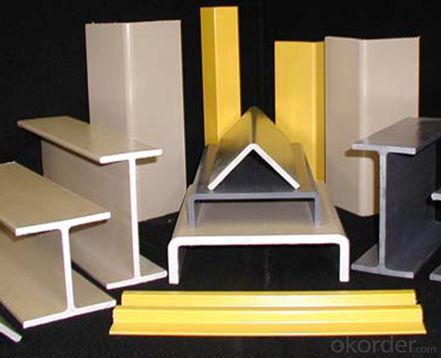
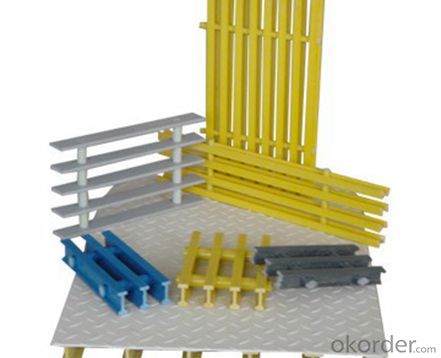
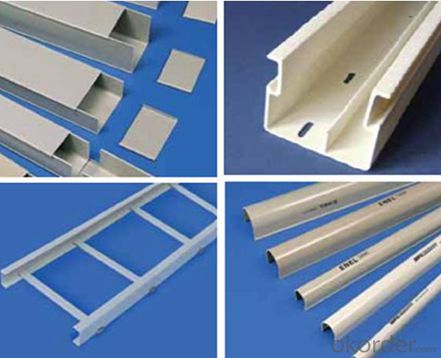
- Q: Are FRP pultrusion profiles resistant to alkaline substances?
- FRP pultrusion profiles are known for their general resistance to alkaline substances. By using fiberglass reinforced polymer (FRP) in pultruded profiles, they acquire excellent resistance against a wide range of chemicals, including alkaline substances. The manufacturing process typically involves using a thermosetting polymer, such as polyester or vinyl ester, as the resin. This choice of resin ensures high resistance to alkaline solutions. Additionally, the fiberglass reinforcement adds strength and durability to the profiles, making them highly resistant to corrosion and degradation caused by alkaline substances. However, it is important to note that the specific resistance of FRP pultrusion profiles to alkaline substances may vary depending on the resin formulation and manufacturing process used. Therefore, it is advisable to consult the manufacturer or supplier to confirm that the profiles meet the specific resistance requirements for alkaline environments.
- Q: How do FRP pultrusion profiles perform in extreme humidity conditions?
- FRP pultrusion profiles perform exceptionally well in extreme humidity conditions. The fiberglass-reinforced plastic material used in the profiles is highly resistant to moisture absorption, preventing any degradation or dimensional changes. This makes them ideal for applications in humid environments, as they maintain their strength, durability, and structural integrity over time.
- Q: Are FRP pultrusion profiles resistant to fuels?
- Generally, FRP pultrusion profiles possess resistance to fuels. The combination of strong fibers and a polymer matrix grants FRP profiles significant resistance to a range of chemicals, including fuels. This resistance primarily stems from the non-reactive nature of the polymer matrix, which prevents fuel from causing notable degradation or harm to the profiles. Industries that frequently encounter fuel exposure, such as automotive, aerospace, and oil and gas sectors, commonly employ FRP pultrusion profiles. These profiles have undergone extensive testing and have demonstrated their ability to withstand prolonged contact with fuels without suffering detrimental effects. Furthermore, FRP profiles provide numerous advantages over traditional materials like steel or aluminum in applications involving fuels. They resist corrosion, are lightweight, and exhibit excellent dimensional stability, making them ideal for environments with a high risk of fuel exposure. However, it is important to note that the specific resistance of FRP pultrusion profiles to fuels may vary depending on the fuel type, concentration, and the composition of the FRP material itself. Therefore, it is always advisable to consult the manufacturer or supplier to ensure that the chosen FRP profiles are suitable for the particular fuel-related application.
- Q: Are FRP pultrusion profiles resistant to high-pressure gas?
- FRP pultrusion profiles are typically able to withstand high-pressure gas. They possess exceptional chemical resistance, making them commonly employed in situations involving exposure to different chemicals, including high-pressure gases. The ability of FRP pultrusion profiles to resist high-pressure gas relies on the specific resin and reinforcement employed during their fabrication. It is crucial to refer to the manufacturer's specifications and guidelines to guarantee that the chosen FRP profiles are appropriate for the intended application involving high-pressure gas.
- Q: Can FRP pultrusion profiles be used in high-voltage applications?
- Yes, FRP pultrusion profiles can be used in high-voltage applications. FRP (Fiber Reinforced Polymer) materials are known for their excellent electrical insulation properties, making them suitable for high-voltage environments. Additionally, FRP pultrusion profiles offer advantages such as high strength, corrosion resistance, and lightweight, making them a viable option for high-voltage applications.
- Q: What is the dimensional stability of FRP pultrusion profiles?
- The dimensional stability of FRP (Fiber Reinforced Polymer) pultrusion profiles is generally high. FRP materials have a low coefficient of thermal expansion, meaning they do not significantly expand or contract with changes in temperature. This property allows FRP pultrusion profiles to maintain their shape and dimensions over a wide range of environmental conditions, making them suitable for applications where dimensional stability is important.
- Q: Can FRP pultrusion profiles be used in automotive applications?
- Yes, FRP (Fiber Reinforced Polymer) pultrusion profiles can be used in automotive applications. FRP pultrusion profiles offer several advantages that make them suitable for automotive use. Firstly, FRP pultrusion profiles are lightweight yet strong, which is crucial in the automotive industry where reducing weight is a priority for improving fuel efficiency and performance. The high strength-to-weight ratio of FRP profiles allows for the design of lighter and more fuel-efficient vehicles. Secondly, FRP pultrusion profiles possess excellent corrosion resistance, which is important for automotive applications where exposure to various chemicals, moisture, and harsh environments is common. This resistance to corrosion ensures the long-term durability and reliability of the profiles, reducing maintenance costs and increasing the lifespan of automotive components. Additionally, FRP pultrusion profiles offer design flexibility, enabling the creation of complex shapes and geometries that can be customized to meet specific automotive requirements. This flexibility allows for the integration of FRP profiles in various automotive components, such as body panels, structural supports, interior trims, and suspension parts. Furthermore, FRP pultrusion profiles exhibit high fatigue resistance, which is crucial for automotive applications that involve repetitive loading and vibrations. The fatigue resistance of FRP profiles ensures their long-term performance and helps prevent failures and breakdowns. Lastly, FRP pultrusion profiles are electrically non-conductive, which is beneficial for automotive applications where electrical isolation is required. This property eliminates the need for additional insulation and reduces the risk of electrical failures and short circuits. Overall, the combination of lightweight, high strength, corrosion resistance, design flexibility, fatigue resistance, and electrical non-conductivity makes FRP pultrusion profiles suitable for various automotive applications, contributing to improved performance, fuel efficiency, durability, and safety in the automotive industry.
- Q: Are FRP pultrusion profiles resistant to jet fuel?
- Yes, FRP pultrusion profiles are generally resistant to jet fuel.
- Q: Are FRP pultrusion profiles resistant to chemicals used in power plants?
- Yes, FRP pultrusion profiles are highly resistant to chemicals commonly used in power plants. The composite materials used in their construction, such as fiberglass and resin, offer excellent resistance to corrosion and chemical attack. This makes FRP pultrusion profiles a durable and reliable choice for various applications in power plants, including structural components and equipment.
- Q: Can FRP pultrusion profiles be used in chemical processing plants?
- FRP pultrusion profiles are indeed applicable for use in chemical processing plants. These profiles possess exceptional resistance to corrosion, rendering them suitable for chemical settings that frequently involve exposure to diverse chemicals, acids, and bases. Moreover, FRP pultrusion profiles exhibit a combination of lightness and strength, allowing for customization to satisfy specific design prerequisites, thereby enabling their adaptability for various applications within a chemical processing plant. Additionally, they possess non-conductive electrical properties, proving advantageous in environments necessitating electrical insulation. On the whole, FRP pultrusion profiles present a durable and cost-efficient resolution for chemical processing plants, as they deliver long-term performance and reduce maintenance expenses.
Send your message to us
FRP Pultrusion Profiles:Anti-Corrosion and Anti-Rust FRP Pultruded Grating
- Loading Port:
- Tianjin
- Payment Terms:
- TT OR LC
- Min Order Qty:
- 4000 m.t.
- Supply Capability:
- 30000 m.t./month
OKorder Service Pledge
OKorder Financial Service
Similar products
Hot products
Hot Searches
Related keywords
